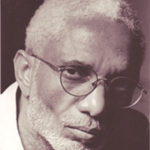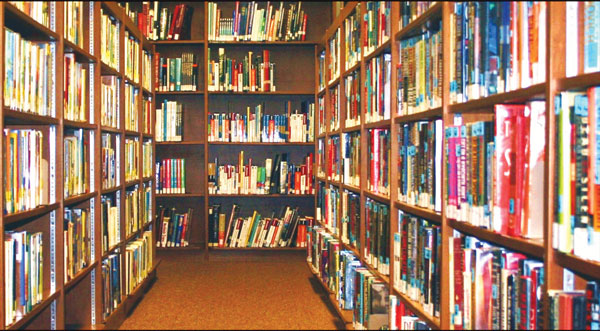
The topic of Lee’s presentation was THE PLACE OF ARTS IN PERSONAL AND SOCIAL DEVELOPMENT OF
ST. LUCIA—TOWARDS A MEANINGFUL
The Case Of St. Lucia
LET us then apply these thoughts to St. Lucia. Are the arts seen as important – vitally important – to the social and cultural development of St. Lucia? How do we understand “arts and cultural development” in St. Lucia? And I ask this question against the background of the existence of a forty-three year old Folk Research Centre and a younger Cultural Development Foundation, with its own mandate to implement a Creative Industries Policy (which seems to me to still need much thinking-out.).
I also ask this question against the background of the closure of the best bookshop in St. Lucia; of no national library, with little official attention paid to the importance of libraries; no national museum, national theatre or national art gallery; no discernible curricula of creative arts programmes in our education system even though there are oases of activity; and while there is much raw talent, we are flooded with much mediocrity (fed principally through the hapless media) and a seeming impatience and indifference to the challenges posed by the aspiration to real, measurable, high, professional standards. And ultimately to a meaningful, tangible, measurable ‘emancipation’ from various mental and emotional slaveries.
And all this while we speak constantly of having two Nobel prize winners. Do we truly understand, comprehend, realize, what the achievements of these two St. Lucians represent? In terms of their own commitment and dedication to hard work? In terms of what the world so values about them and their achievements? In terms of what the expectations and responsibilities are for us as the society from which they come?
What about the link between cultural development and our educational curricula? Are our educational concerns directed primarily at the superficially “educational,” with the result that we have more university degrees and CXC’s than ever before, but we are more functionally illiterate and ignorant than ever before? (have you listened to the content, tenor, tone, illogicalities, contradictions, seeming amorality of much that has been filling our air-waves in recent times, especially through the ubiquitous talk shows and their callers?). Are our educational curricula directed more at the material and consumerist and the titillating, so we have more facts than ever available to us, at our smartphone fingertips, but we are more truly uninformed about the really important, than ever before? Our lack of serious attention to our real history in our schools and wider society drew moving and impassioned comment from our acting Prime Minister and Minister of Education during a recent television programme on the reparations issue.
The late Christian journalist Malcolm Muggeridge once said: “We have educated ourselves into imbecility.” And have popular culture and entertainment become so shallow and hedonistic and mindless that we have become a pornographic society for whom feeling is founded on the sinister romances of callous soap-opera characters, on the violent noise and obscene gyrations of hip-hop, soca and dance-hall icons and on hot cyber-space gossip?
Have we found ourselves in new enslavements from which we need, desperately, new emancipations?
How do we explain the brutality of rapes and murders, especially of young girls; the horrendous, demonic attacks recently on 80 and 90 year old women; the conscience-less gang slayings; the pervasive hostility and anger one senses everywhere? Where is that coming from? If one wants to blame poverty, is it not rather a poverty of spirit, a poverty of feeling not properly developed, a poverty of vision and creative imagination – rather than a material poverty – that has created such violence and corruption in our societies? And so, instead of a stabilization of order and positive development, we have entered a period of increasing anarchy and brutality and fear for our lives.
If we say that our criminals and deviants are only expressing their feeling and thinking about their society and fellow citizens, and if we unanimously agree that it is a wrong feeling and vision, how can we help them to feel and see better? Apart from locking them up and shooting them down? Is there an answer to be found through involvement in the arts via school, community and arts groups? Can we not at least give arts education a serious try alongside the other academic pursuits – which seem to have serious limitations anyway? Can we not provide more space for our artists to exhibit and perform their work? Can we not encourage the visionary artists among us? Why can’t we get them involved in planning towns, villages, new housing areas, new offices and schools?
I certainly do not propose the arts and arts education as absolute panacea. From this Methodist platform, I know that many of us share a religious view of answers and solutions that we hold to be more important than those provided by the arts. But I am also convinced that the arts can be of great benefit to our societies in educating our people for a quality of life and relationship that is higher than what presently exists. I often think that we have become very spiritually poor and that in the midst of a certain material prosperity.
Conclusion
In the context of thinking about various perspectives on Emancipation (historical, societal, personal) should not the arts and culture find a higher and more certain place on development agendas? Does our country not need upgrade and development of modern libraries, in both schools and communities? How about improving performance spaces in schools and community centres, and this in association with the CDF in its new efforts at creating training and employment avenues through the creative industries? (Which we trust will continue under a new administration?) Is there not room for helping both older and upcoming artists in more tangible ways? And alongside all that, as a foundation to artistic exploration and expression, do we not need to ensure that our real history, and culture and our literature and art play a larger and fundamental part in our educational curricula?
Emancipation in all its aspects, starts somewhere. We begin with ourselves, who and what we are, in our personal and public histories and cultures and spaces, we confront the atrocities, shame, failures and successes and achievements of the past and proceed, with vision, shaped by thoughtful learning, to the point of greater freedom that we imagine.
If we agree that the creative arts provide a path to a full and wholistic education of the human being, to a truer emancipation “from mental slaveries,” including the important emotional areas of our lives; that the arts are necessary to every society; that the creative imagination is needed in business as well as all other areas – should the Christian church and its members not look again to see how we can help in enhancing our arts and cultural development? Without compromise to our fundamental, Biblical principles of faith in God and Christ and obedience to His Word? And in so doing help to shape the nation we are living in, which we call home. And to offer, from our religious perspectives on the arts and culture, paths to a continuing and more meaningful emancipation from old and new enslavements into a truly freer, social and living space?
For us who hold a world-view of creation by a personal Creator; us for whom there is purpose and meaning and truth in our world, faith and art go well together. Ultimately for us of course, emancipation is spiritual emancipation. There is the heart of the matter.
(John Robert Lee is a St. Lucian writer. His latest publication is City Remembrances: poems (2016). He is an elder with the Calvary Baptist Church, Massade, Gros Islet, a Bible teacher and preacher. In earlier years he contributed regular columns on Christian themes to local newspapers and produced a radio broadcast heard on many Caribbean radio stations, entitled The Christian Mind. He is a librarian with the Folk Research Centre. He has been involved for many years with the arts, culture, education and media.)





![Simón Bolívar - Liberator of the Americas [Photo credit: Venezuelan Embassy]](https://thevoiceslu.com/wp-content/uploads/2025/12/Simon-Bolivar-feat-2-380x250.jpg)



